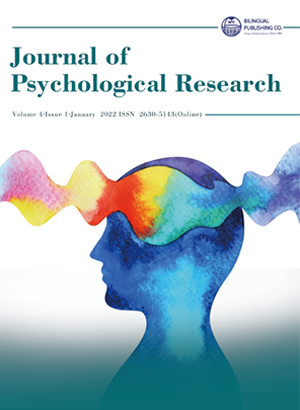-
689
-
577
-
405
-
326
-
296
The Role of Photographs and Time Lag on Positivity Ratings of Vacation and Weekend Memories
DOI:
https://doi.org/10.30564/jpr.v4i1.4131Abstract
Two studies examined the question of whether photograph taking of an event influences the positivity of the evaluations of the event at a later point in time. Memories of photographed events yielded higher positivity ratings than memories that were not photographed. Although we expected fading of positivity ratings to occur more slowly over a period of two months for memories of photographed events, we found faster affect fading for those memories in Study 2 instead. The findings of the two studies support the idea that taking photographs of events sustains the affective reconstruction of autobiographical memories, regardless of whether these events are special, such as vacation memories, or more mundane, such as memories of the past weekend.Keywords:
Autobiographical memory; Memory fading; Memory affective positivity; Evaluation of remembered events; Photo-taking effectReferences
[1] Nunes, M., Greenberg, S., Neustadter, C., 2009. Using physical memorabilia as opportunities to move into collocated digital photo-sharing. International Journal of Human-Computer Studies. 67(12), 1087- 1111. DOI: https://doi.org/10.1016/j.ijhcs.2009.09.007
[2] Chou, H.T.G., Edge, N., 2012. They are happier and having better lives than I am: The impact of using Facebook on perceptions of others’ lives. Cyberpsychology, Behavior, and Social Networks. 15(2), 117- 121. DOI: https://doi.org/10.1080/cyber.2011.0324
[3] Sparrow, B., Liu, J., Wegner, D.M., 2011. Google effects on memory: Cognitive Consequences of having information at our fingertips. Science. 333(6043), 776-778. DOI: https://doi.org/10.1126/science.1207745
[4] Diehl, K., Zauberman, G., Barasch, A., 2016. How taking photos increases enjoyment of experiences. Journal of Personality and Social Psychology. 111(2), 119-140. DOI: https://doi.org/10.1037/pspa0000055
[5] Barash, A., Diehl, K., Silverman, J., et al., 2017. Photographic memory: The effects of volitional photo taking on memory for visual and auditory aspects of an experience. Psychological Science. 28(8), 1056- 1066. DOI: https://doi.org/10.1177/0956797694868.
[6] Henkel, L.A., 2014. Point-and-shoot memories: The influence of taking photos on memory for a museum tour. Psychological Science. 25(2), 396-402. DOI: https://doi.org/10.1177/0956797613504438
[7] Soares, J.S., Storm, B.C., 2018. Forget in a flash: A further investigation of the photo-taking-impairment effect. Journal of Applied Research in Memory and Cognition. 7(1), 154-160. DOI: https://doi.org/10.1016/j.jarmac.2017.10.004
[8] Walker, W.R., Vogl, R.J., Thompson, C.P., 1997. Autobiographical memory: Unpleasantness fades faster than pleasantness over time. Applied Cognitive Psychology. 11(5), 399-413. DOI: https://doi.org/10.1002/(SICI)1099-0720(199710)11:5
[9] Skowronski, J.J., Walker, W.R., Henderson, D.X., et al., 2014. The Fading Affect Bias. Advances in Experimental Social Psychology, Elsevier. 49, 163-18. DOI: https://doi.org/10.1016/b978-0-12-800052-6.00003-2
[10] Ritchie, T.D., Skowronski, J.J., Cadogan, S., et al., 2014. Affective responses to self-defining Autobiographical events. Self and Identity. 13(5), 513-534. DOI: https://doi.org/10.1080/15298868.2013.863222
[11] Walker, W.R., Skowronski, J.J., Thompson, C.P., 2003. Life is pleasant--and memory helps to keep it that way!. Review of General Psychology. 7(2), 203- 210. DOI: https://doi.org/10.1037/1089-2680.7.2.203
Downloads
How to Cite
Issue
Article Type
License
Copyright © 2022 Katinka Dijkstra, Keri Pekaar, Jacky Hooftman, Yvette van Osch

This is an open access article under the Creative Commons Attribution-NonCommercial 4.0 International (CC BY-NC 4.0) License.




 Katinka Dijkstra
Katinka Dijkstra






